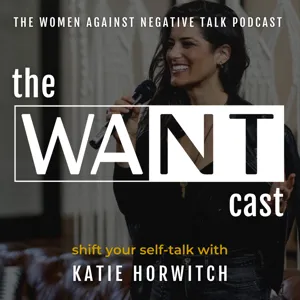Podcast Summary
The Difference Between People Pleasing and Helping Others: Finding Balance in Serving: Prioritizing our own well-being allows us to help others effectively, turning from people pleasers to individuals with purpose.
It is natural to want to see other people happy and healthy. Wanting others to feel good and be joyful is a beautiful feeling that we should hold onto. However, there is a difference between people pleasing and helping and serving others. People pleasing is when we deprioritize ourselves and displease ourselves in order to please others. It can lead to self-dislike and exhaustion. Instead, we should focus on taking care of ourselves so that we can serve and help others effectively. Prioritizing our own health and well-being allows us to be more, give more, and serve more. It's important to recognize the traits of people pleasers and transform into people with purpose.
Breaking Free from People Pleasing: Prioritizing our own well-being and learning to say no are important steps in breaking free from the cycle of people pleasing and leading more fulfilling lives.
Being a people pleaser can make our lives harder. Jay Shetty explains that many individuals struggle with saying no and often find themselves sacrificing their own needs and identity to make others happy. This behavior can stem from low self-esteem and a fear of not being accepted. However, Shetty emphasizes that wanting others to be happy is not the problem; the challenge arises when we prioritize others' happiness over our own well-being. According to a YouGov poll, nearly half of American adults believe that they are perceived as people pleasers. Being aware of the traits of people pleasing, such as struggling to say no, can help us break free from this behavior and lead more fulfilling lives.
The importance of learning to say no for our well-being and self-worth.: Saying no is crucial for protecting our mental and emotional health, even if it means losing some people in our lives.
Learning to say no is essential for our own well-being and self-worth. We often struggle to say no because we fear that it will make us unlikeable or useless to others. However, we need to realize that the people who truly love us do so because of who we are, not because of what we can do for them. Saying yes to everything can lead to overwhelm and eventually resentment. It's important to prioritize our own needs and set boundaries, even if it means losing some people in our lives. Learning to say no in a kind and respectful way allows us to protect our own mental and emotional health.
Setting Boundaries and Communicating Honestly for Healthy Relationships: It is important to set boundaries and communicate honestly with others, surrounding yourself with a supportive community that respects your well-being and understanding that it's not necessary to constantly apologize for everything.
It is important to set boundaries and communicate honestly with others. Instead of simply saying "no" without explanation, it is better to politely decline and provide a genuine explanation for why you are unable to attend or participate. Surrounding yourself with a supportive and understanding community is crucial, as they will respect your boundaries and not make you feel guilty for prioritizing your well-being. Additionally, it is essential to stop constantly apologizing for every little thing and taking on unnecessary blame. Taking responsibility for your own actions is important, but it is equally important to recognize that others are responsible for their own choices and emotions. Instead of apologizing, ask questions and seek to understand the situation better.
Replacing Apologies with Questions: A Guide to Difficult Situations, Effective Communication, and Finding Genuine Belonging: Instead of apologizing immediately, ask how things could have been done better. Reflect on your needs daily to improve relationships. Find your natural group where you feel accepted.
Replacing apologies with questions can be an effective way to handle difficult situations. Instead of immediately saying sorry, it is important to take a step back and ask how things could have been done better or how the situation could have been approached differently. This approach helps to avoid unnecessary blame and encourages collaborative problem-solving. Additionally, it is crucial to communicate our needs and opinions in relationships. Taking time daily to reflect on what we need can lead to healthier relationships and a better understanding of ourselves. Lastly, feeling rejected or left out may be a result of trying to fit into a group that does not naturally align with our values and interests. It is essential to find our own natural group where we feel accepted and genuinely belong.
Embracing Authenticity: Finding Your Own Tribe: Find your genuine social circle that appreciates and accepts you for who you are, and avoid conforming to groups that don't align with your values and make you unhappy. Express your opinions without engaging in combative debates.
It is important to find your own group of friends and community rather than trying to fit into a specific group that may not align with who you truly are. Jay Shetty emphasizes the idea of being authentic and embracing different social circles and environments that suit your interests and values. He encourages individuals to surround themselves with people who appreciate and accept them for who they are, rather than feeling rejected by trying to conform to a group that may not make them happier. By finding our own misfits and diverse communities, we can live a more genuine and fulfilled life. Furthermore, Jay Shetty highlights the significance of sharing our opinions without being combative, understanding that disagreements do not have to turn into debates or disputes.
Harnessing the Power of Silence and Effective Communication for Positive Impact: By choosing silence over negativity, engaging in open dialogue, and staying true to personal values, individuals can transform conversations and their own sense of self.
Silence can be a powerful way to share your opinion without being combative or preachy. Instead of joining in on negative or gossipy conversations, remaining silent can make a difference. Engaging in conflict or tough conversations can often be avoided by having upfront and rehearsed discussions. By making a list of notes and clearly communicating the challenges, solutions, and seeking the other person's perspective, the quality of the conversation can be transformed. Additionally, it is important to know and prioritize your own values instead of constantly trying to please others. Taking the time to reflect on your current values and determining if they still align with who you want to be can lead to a transformative self-realignment.
Taking back control: Flying with intention instead of on autopilot: By being intentional and asking ourselves "why" before making decisions, we can live with purpose and align our choices with our values and priorities.
Our decisions are often made on autopilot without much thought. Just like a commercial flight captain relies on autopilot for 90% of the flight, we tend to make about 90% of our decisions without intentionality. However, unlike the pilot, we don't usually end up where we want to go when we let our decisions be on autopilot. To stay dialed in and make choices that align with our values and priorities, we need to be intentional. By asking ourselves "why" before each decision, we gain clarity and direction. This simple yet profound exercise can help us live with purpose rather than being driven by unquestioned impulses. So, let's take back control and fly with direction and intention.




